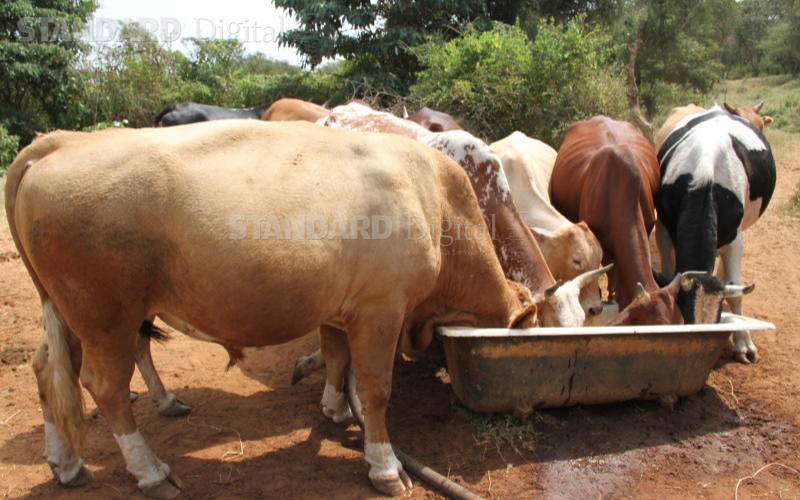×
The Standard e-Paper
Kenya’s Boldest Voice

Happy New year. Thank you for helping us learn more on animal husbandry.
I have been an ardent reader since I started my farming venture some years back. I come from Kitui and water is scarce both for livestock and home use. While I endeavour to provide my sheep and two dairy cows with sufficient water, sometimes, I face challenges. That is why I am asking, is there a minimum daily water requirement for animals?